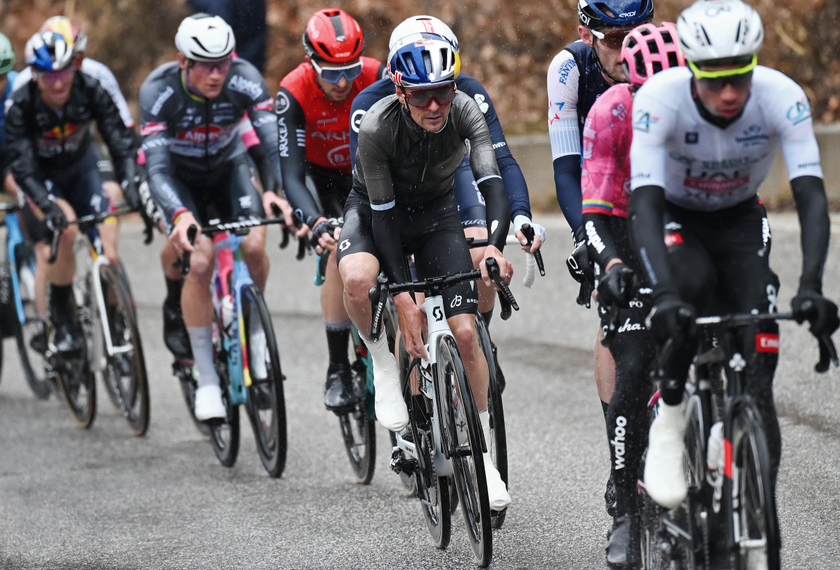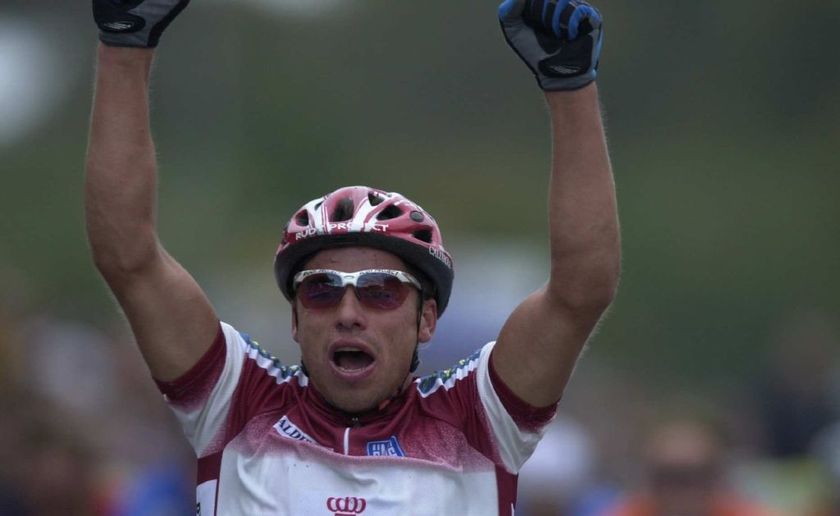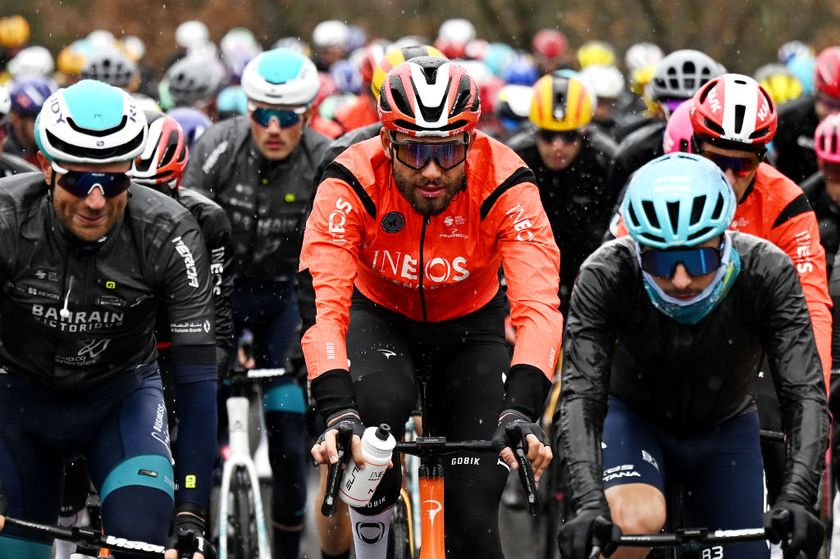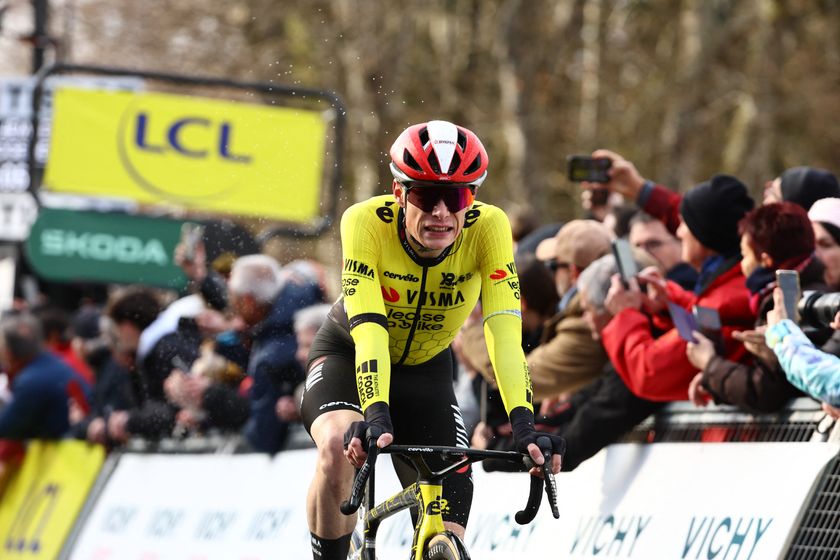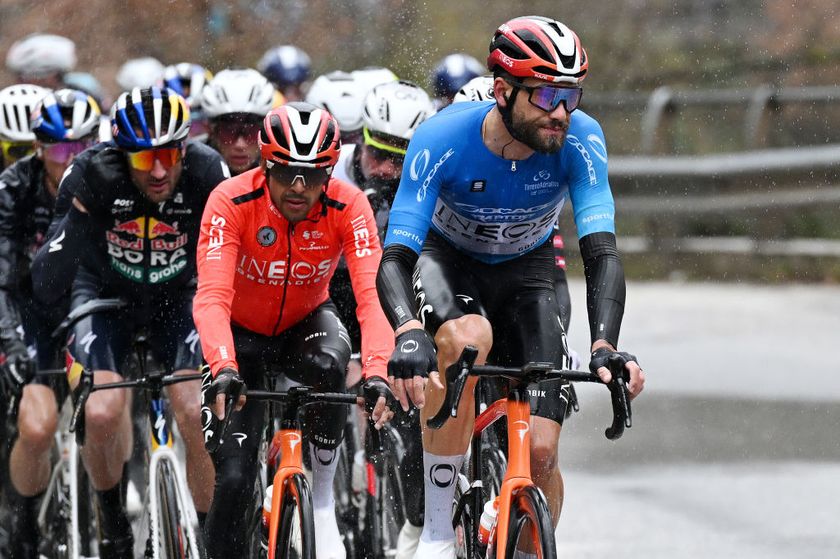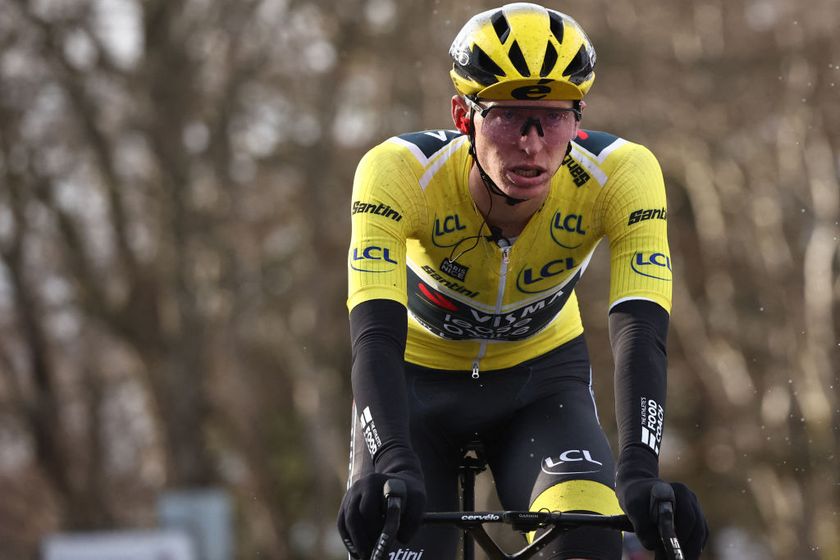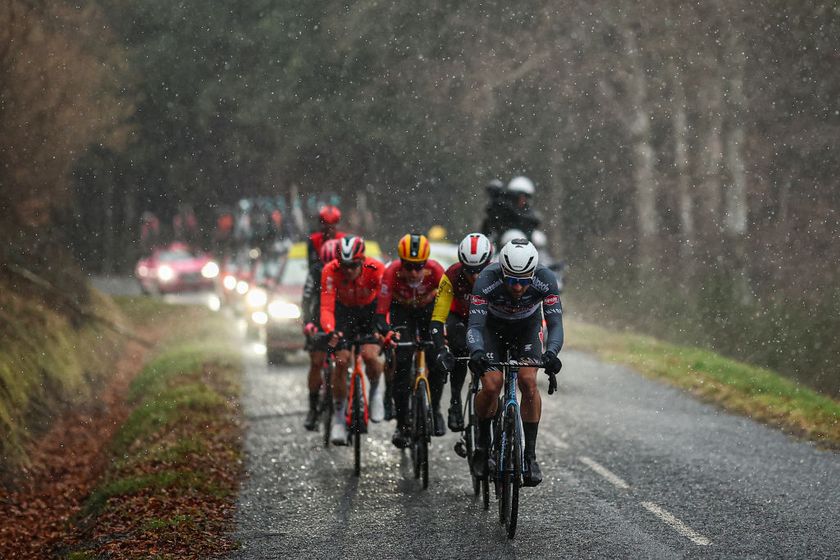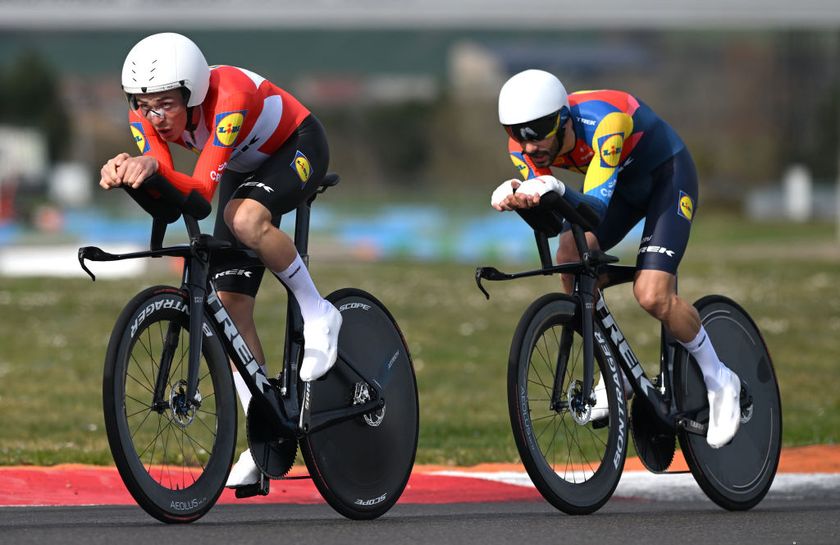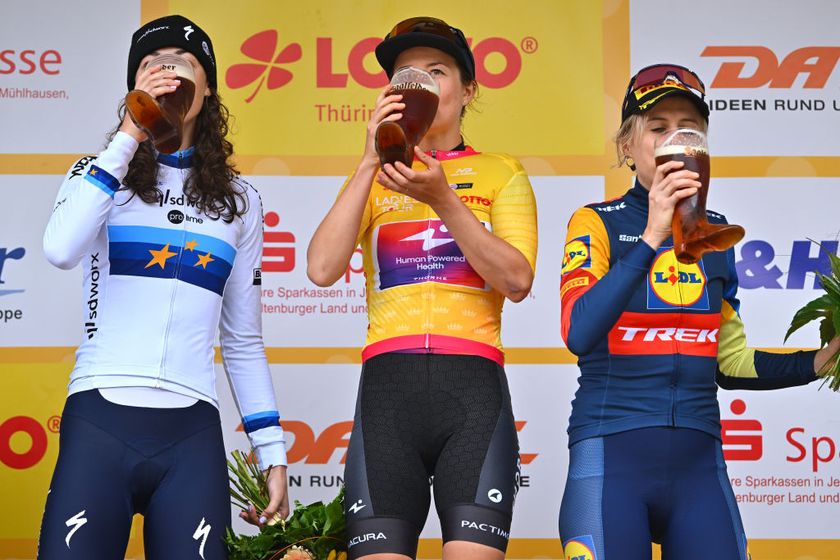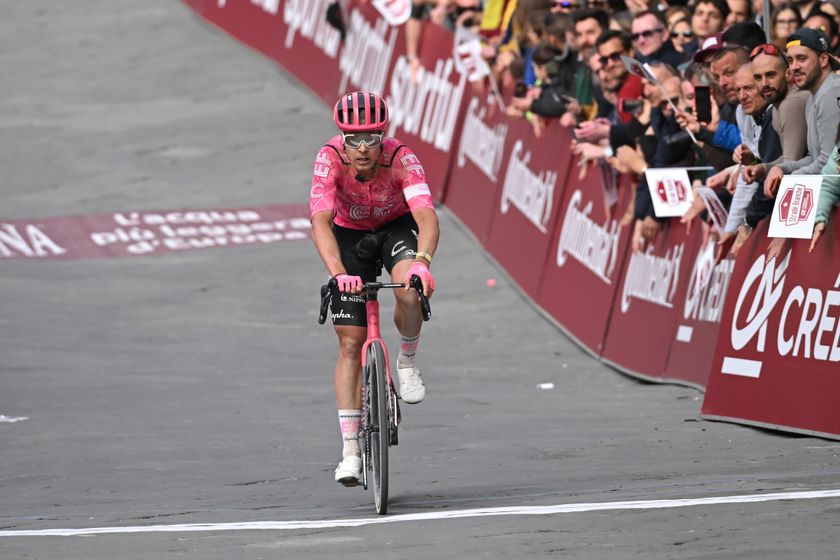Tour de France 2019 route revealed
100th anniversary of yellow jersey celebrated with mountainous route
























The route of the 2019 Tour de France has been presented in Paris, with race organiser ASO celebrating the 100th anniversary of the introduction of the race leader’s yellow jersey with a route that features 30 categorised climbs, five mountains finishes and only 54 kilometres of time trialling.
2019 Tour de France route: All the rumours ahead of the big reveal
Dirt-road summit finish at 2019 Tour de France revealed
Watch the 2019 Tour de France route presentation live on Cyclingnews
Tour de France 2019 route reactions from Froome, Dumoulin, and others
Geraint Thomas: 2019 Tour de France is tough and will be as exciting as ever
The 2019 Tour de France will be a battle in thin air, with three of the five mountain-top finishes above 2000 metres, leading race director Christian Prudhomme to bill it as "the highest Tour in history".
However, ASO has reduced some key stage distances; stage 14 to the Col du Tourmalet is just 117km, stage 19 to Tignes is 123km, and stage 20 up to Val Thorens is only 131km.
"Our desire is not to make things harder but more varied," Prudhomme said. "There will be less hors catégorie cols than in previous years but there will be more second category climbs. There will be more medium mountains, where the race is harder to control, and we take full responsibility for that decision.
ASO confirmed it would also request the UCI to increase the seconds awarded at the intermediate sprints and also try to ban power metres, which Prudhomme suggested “annihilate the glorious uncertainty of sport".
The 106th edition of the Tour de France starts in Brussels, Belgium, to celebrate the 50th anniversary of the first of Eddy Merckx’s five victories, and then heads south into France via the Vosges and the Massif Central to first tackle the Pyrenees, with a finish at the top of the Tourmalet, an individual time trial around Pau, and then a final mountain stage over the steep Mur de Péguère before the finish above Foix at Prat d’Albis.
The route then transfers across the south of France via a second rest day in Nîmes for a triple whammy of Alpine stages that include the Col d’Izoard, the Col du Galibier, and the 2770m-high Col d’Iseran – the highest paved mountain pass in Europe.
Get The Leadout Newsletter
The latest race content, interviews, features, reviews and expert buying guides, direct to your inbox!
The final winner of the 2019 Tour de France will be decided on the final 33.4km climb up to the 2365m-high finish at Val Thorens on stage 20, with the winner of the 2019 yellow jersey, as per tradition, crowned in Paris the day after.
The total race distance is 3460km, with the three weeks of racing held between Saturday July 6 and Sunday July 28.
There was no news of a women’s Tour de France, with ASO only giving scant regard to the women’s La Course race. In 2019 La Course will be a one-day 120km road race on the men’s Pau time trial course. The L’Etape du Tour sportive event will be held on Sunday July 21, covering the 135km stage from Albertville to Val Thorens.
Five-time Tour de France winners Eddy Merckx, Bernhard Hinault and Miguel Indurain were all present in Paris for the route presentation, as was French hero Raymond Poulidor, who finished on the podium eight times but never managed to win the yellow jersey. Also at the presentation were 2018 winner Geraint Thomas and Chris Froome, who is hoping to win a fifth Tour de France in 2019.
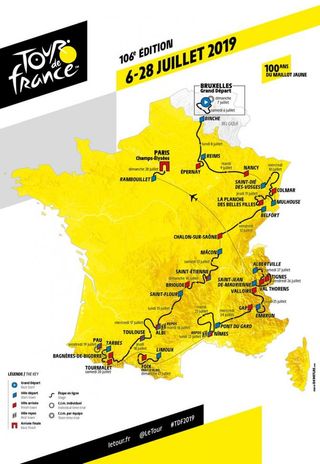
The Grand Départ in Belgium
The Grand Départ in Brussels will celebrate the 50th anniversary of Eddy Merckx’s first yellow jersey in 1969 with an opening road stage on the Cannibal’s local roads. The 192km stage will head down to Charleroi via the cobbled Muur van Geraardsbergen climb and even includes a visit to Woluwe-Saint-Pierre, where Merckx won the first of his 111 yellow jerseys - if split-stages are included.
It is the second time Brussels hosts the Grand Départ, with the road stage likely to see a sprinter take the first yellow jersey of the 2019 race. Time bonuses of 10, six and four seconds will again be awarded on every road stage.
The overall contenders and the strongest teams will have to show their combined strength for the 28km team time trial on stage 2, which finishes in the shadow of the Atomium building.
Stage 3 heads south from Binche in Belgium into France for a finish in Epernay and stage 4 is also a day for the sprinters with a finish in Nancy. Peter Sagan beat current European champion Matteo Trentin in a photo finish here in 2014.
The Tour de France hits the Vosges mountains on stage 5 to Colmar and intensifies again on stage 6 to La Planche des Belle Filles, with race director Christian Prudhomme confirming the addition of a dirt-road final kilometre and 20 per cent finish at the very top of the climb. The stage also includes the Ballon d’Alsace, making it a testing first day in the mountains, just a week into the race.
A stage via Chalon-sur-Saone, and hilly rides via Macon, Saint-Etienne, Brioude – Romain Bardet’s home town - and Albi take the riders towards the Pyrenees. They will be chances for breakaways but also nervous days for the overall contenders due to a risk of cross winds and the sheer amount of climbing. Stage 8 to Saint-Etienne seems innocuous but includes 3750m of climbing. The stage to Toulouse will offer some respite and a chance for the sprinters but after so many sprinters missing the time cut in 2018, it will be interesting to see how many of them stay in the race beyond the Pyrenees.
Celebrating yellow in the Pyrenees
Eugène Christophe was the first rider to wear the yellow jersey in the 1919 Tour de France and the race will celebrate his famous mechanical on the slopes of the Col du Tourmalet with a finish atop the mountain on stage 14.
Before then, the riders face another tough mountain stage to Bagnères-de-Bigorre and a rolling 27km individual time trial around Pau on July 19, exactly 100 years after Christophe pulled on the first yellow jersey in Grenoble, in 1919.
Stage 12 to Bagnères-de-Bigorre is over 202km and includes the Col de Peyresourde and the stunning Hourquette d’Ancizan. Dan Martin was the last winner in the Bagnères-de-Bigorre in 2013.
The following day's 27km time trial around Pau will be pivotal for the overall classification but ASO clearly hope the rolling profile and limited distance will give poorer time trialists such as Romain Bardet and Thibaut Pinot a chance to stay in overall contention.
The Tourmalet stage is short at just 117km but the climb to the summit is via Super Barèges instead of La Mongie and is 19.4km long at 7.4 per cent. The combination of the reduced distance, coming after the time trial could cause some unexpected problems. The only previous winners at the summit of the Col du Tourmalet are Jean-Pierre Danguillaume (in 1974) and Andy Schleck (in 2010).
A final 185km stage in the Pyrenees takes the riders from Tarbes to Foix via the little known Col de Montségur, the Port de Lers and the Mur de Péguère (9.3km at 7.9 per cent). The finish is above Foix at at Prat d’Albis, with an 11.8km climb at 6.9 per cent. The stage includes a total of 4700m of climbing.
The finale in the Alps
The final week begins with a transfer to the Alps via Nîmes, which hosts the second rest day, and then Gap. These stage are far from flat, with ASO hoping cross winds will cause problems and perhaps some spectacular echelon racing.
The decisive mountain stages begin with the 207km stage 18 to Valloire. It includes the Col de Vars, the Col d’Izoard, the Col Du Galibier, all three over 2000m – a first since 2011. They will ride through the legendary moonscape of the Casse déserte on the Col d’Izoard, before driving up the valley to the foot of the might Col du Galibier. After cresting the 2642m summit, the stage ends with a 15km fast descent to the finish but it will be one of the hardest days of the 2019 Tour de France.
Stage 19 to Tignes is again a short one at 123km but includes the 2770m high Col d’Iseran - 12.9km at 7.5 per cent - which is the highest pass in Europe. The lack of oxygen will make it feel far steeper and test the overall contenders before the descent down the Val d’Isère. The Tour de France has climbed the Col d’Iseran seven times but this will be only the second time via the harder south side. The stage finish is above Tignes, with a final 7.4km climb at 7 per cent, again over the 2000m mark.
The final day in the mountain at the 2019 Tour de France is another short stage at just 131km but three major climbs make up for the lack of distance. The stage starts with the Cormet de Roselend and is followed by a fast descent. The Côte de Longefoy is climbed for the first time in the history of the Tour de France and the technical descent towards Moutiers will be as equally as testing. The stage and the 2019 Tour de France will be decided on the never-ending climb to Val Thorens – 33.4km at 5.5 per cent. It is not steep but, at 2365m, it is the fifth mountain finish in the 2019 race and the third highest finish in the history of the Tour de France.
Whoever pulls on the yellow jersey in Val Thorens will ride into the Paris the day after as the winner of the 2019 Tour de France.

Stephen is one of the most experienced member of the Cyclingnews team, having reported on professional cycling since 1994. He has been Head of News at Cyclingnews since 2022, before which he held the position of European editor since 2012 and previously worked for Reuters, Shift Active Media, and CyclingWeekly, among other publications.
